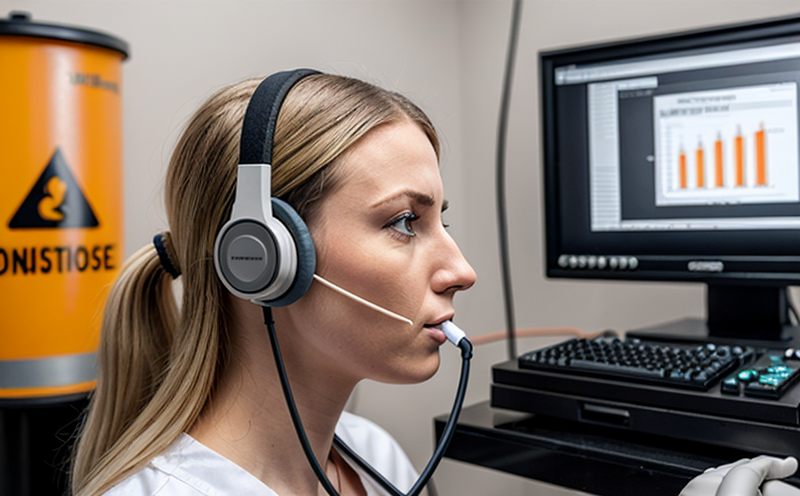ANSI S3.19 Hearing Protector Attenuation Measurement Testing
The ANSI S3.19 standard provides a rigorous method for measuring the noise reduction provided by hearing protectors in controlled laboratory conditions. This service ensures that hearing protection devices (HPDs) meet specified performance criteria, which is crucial for maintaining occupational safety and health standards.
Occupational noise exposure can have severe consequences on worker health, including hearing loss, tinnitus, and other stress-related issues. Hearing protectors are designed to mitigate these risks by reducing the level of sound reaching the ear. The ANSI S3.19 standard outlines a precise procedure for measuring the attenuation provided by HPDs under various conditions, ensuring that they perform as advertised.
This testing is essential for manufacturers and purchasers alike. It allows them to verify the effectiveness of their products before deployment in real-world scenarios where noise levels can vary widely. Additionally, compliance with ANSI S3.19 ensures that hearing protectors meet regulatory requirements set forth by various jurisdictions.
The standard specifies several key aspects of HPD testing:
- Measurement techniques
- Environmental conditions
- Spectrograms for evaluation
- Data analysis procedures
To perform ANSI S3.19 compliant tests, our laboratory uses state-of-the-art equipment capable of accurately measuring sound levels and recording attenuation values. The process involves placing the hearing protector over a microphone that records both ambient noise and the sound transmitted through the protector.
The testing procedure is conducted in an anechoic chamber to minimize external interference. This environment ensures consistent results regardless of variations in laboratory conditions or equipment performance.
After collecting data, it undergoes rigorous statistical analysis to determine the average attenuation value for each hearing protector type. These values are then compared against specified thresholds defined by ANSI S3.19 and other relevant standards such as ISO 4869-1:2013.
The results of this testing provide critical information about the effectiveness of different HPD models in various environments. This knowledge helps employers make informed decisions when selecting appropriate protection for their workforce, thereby enhancing overall safety and compliance.
Our team of experts ensures that every aspect of the ANSI S3.19 standard is meticulously followed during each test run. By doing so, we guarantee accurate and reliable measurement results that can be confidently relied upon by our clients.
Applied Standards
| Standard Name | Description |
|---|---|
| ANSI S3.19-2012 | This standard provides procedures for measuring the attenuation of hearing protectors in specified ear-canal insert (ECI), earmuff, and headband-type earplug configurations. |
Benefits
Compliance with ANSI S3.19 ensures that hearing protectors meet stringent performance criteria, providing peace of mind for both manufacturers and end-users. Here are some key benefits:
- Enhanced Safety: Ensures worker safety by verifying that HPDs effectively reduce noise levels.
- Avoidance of Regulatory Penalties: Helps organizations avoid costly fines associated with non-compliance to occupational health and safety regulations.
- Improved Product Quality: Guarantees that products meet industry standards, enhancing brand reputation and customer satisfaction.
- Cost Savings: Identifies potential issues early in the development process, reducing rework costs.
- Ethical Responsibility: Demonstrates a commitment to employee welfare by ensuring safe working environments.
By adhering to ANSI S3.19 standards, organizations not only fulfill their legal obligations but also contribute positively towards creating safer workplaces.





